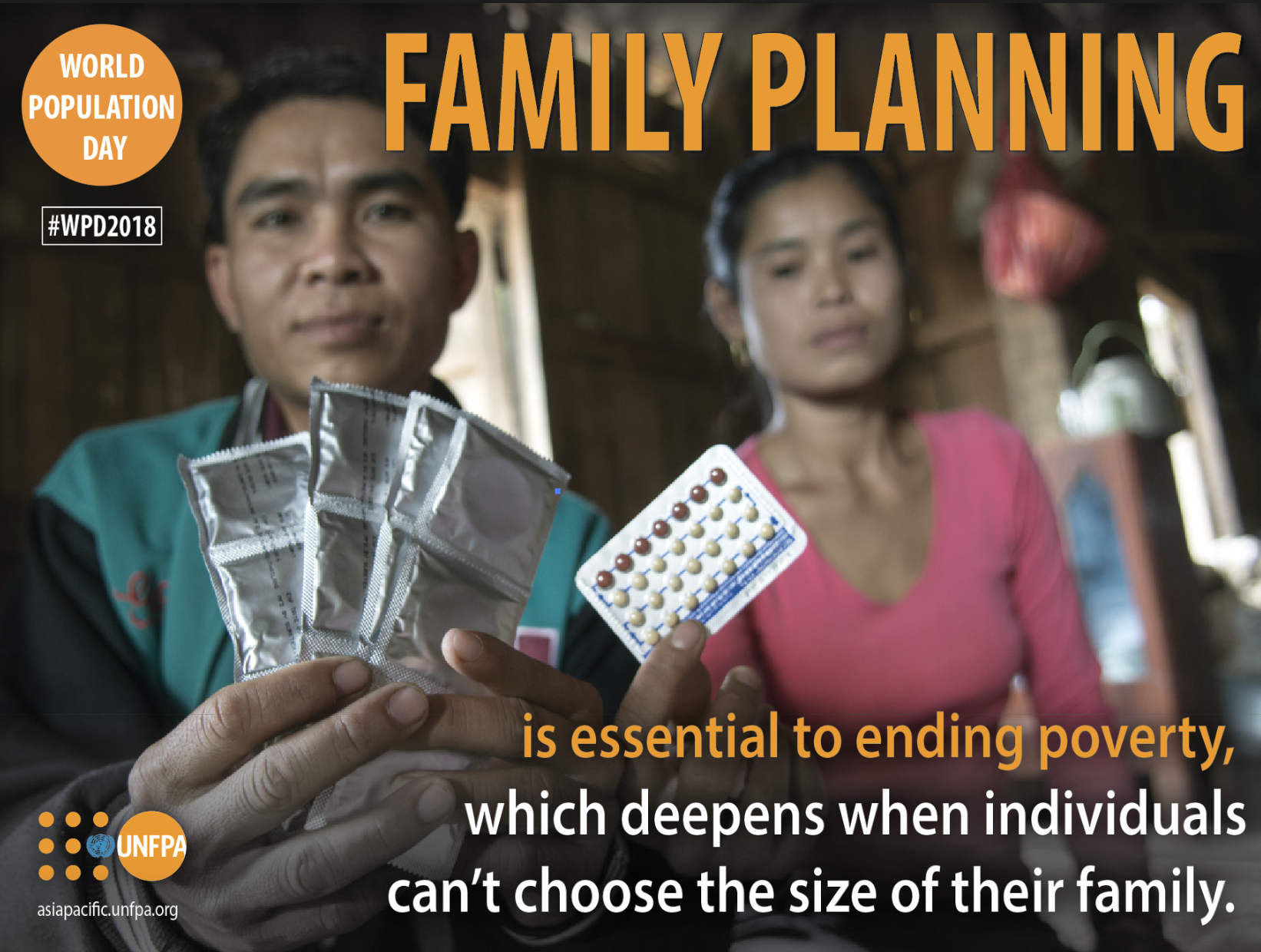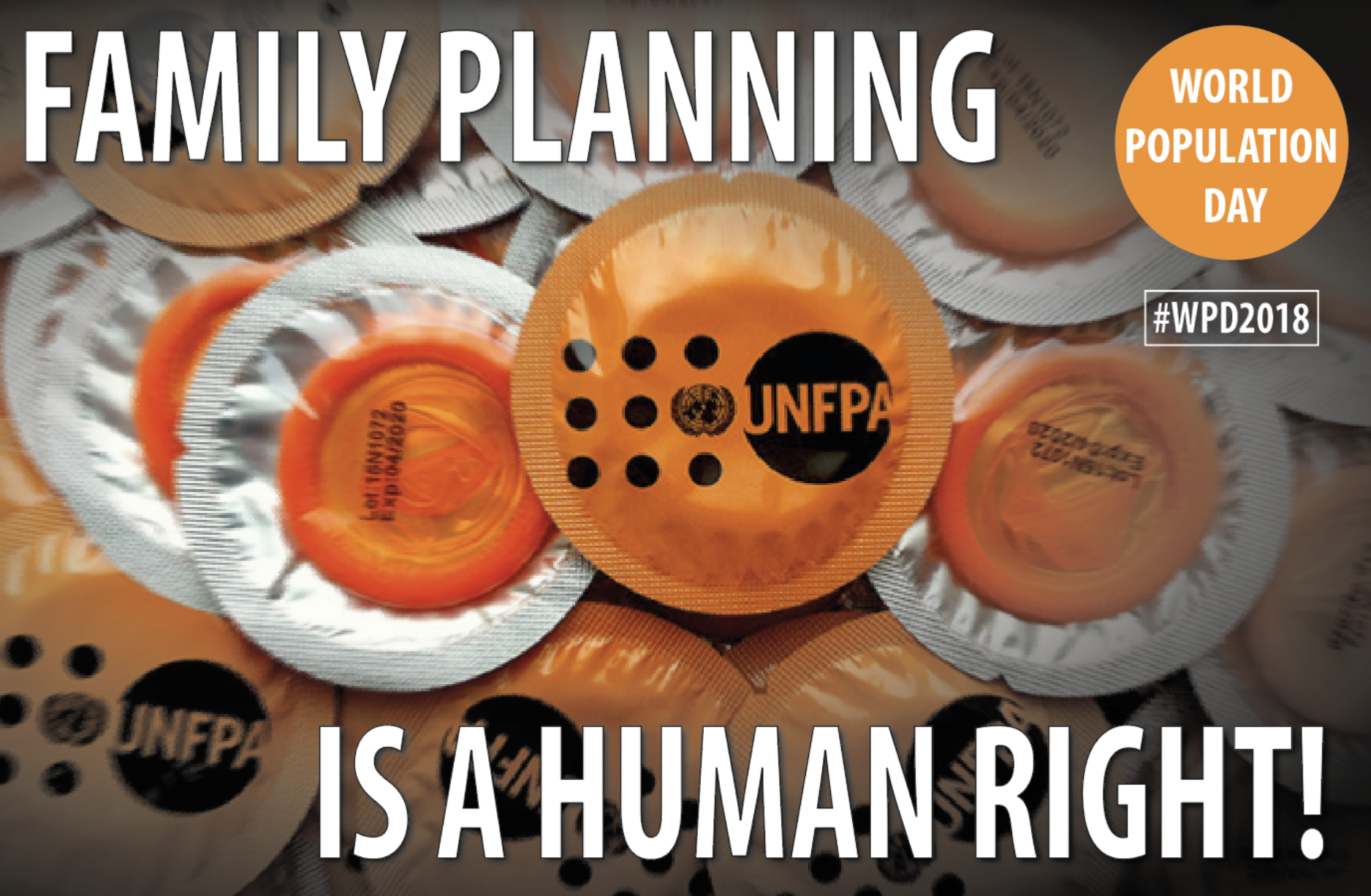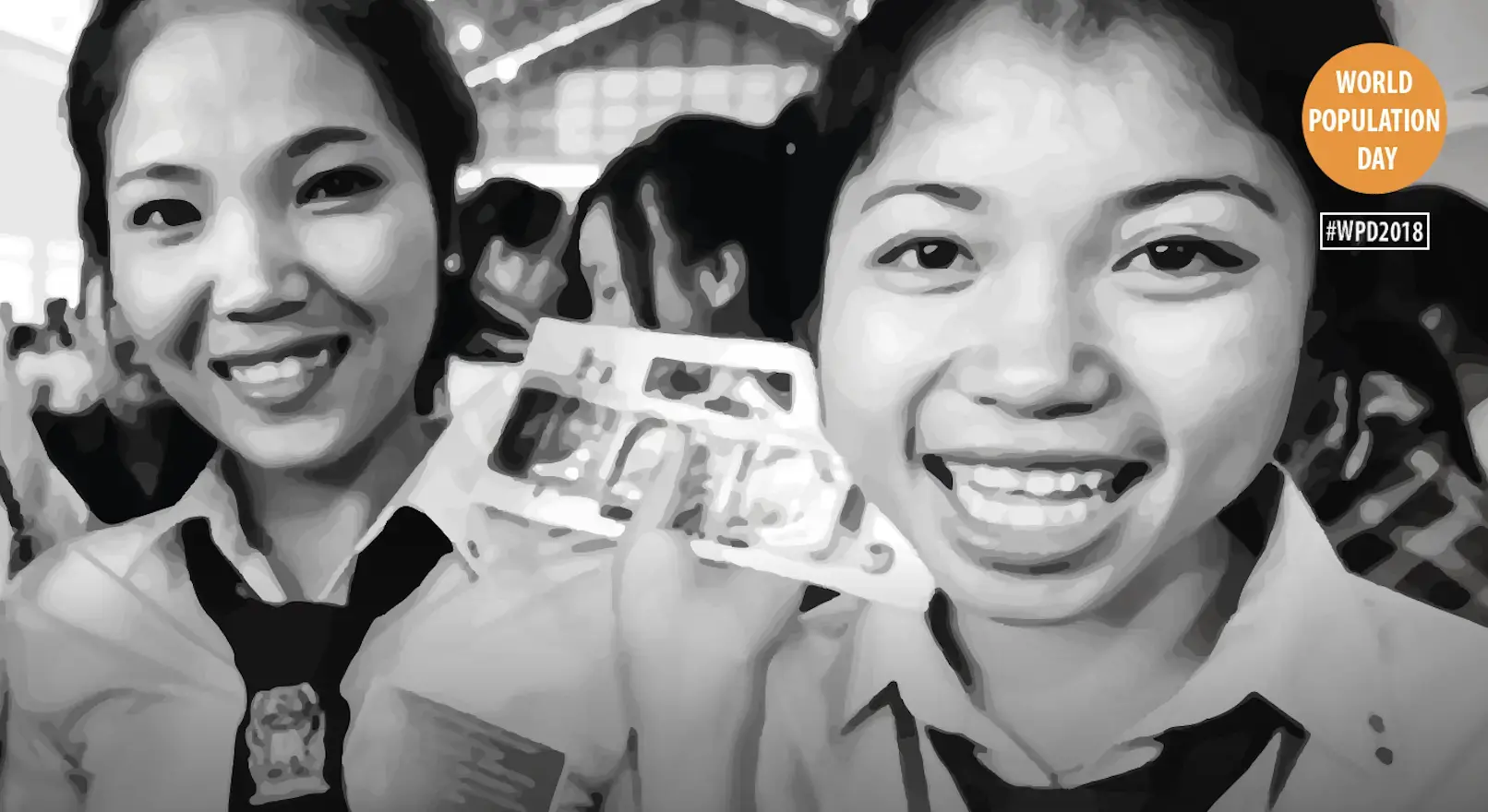Family planning is a human right
UNFPA and the Government of Viet Nam will jointly host a panel discussion to mark World Population Day on 11th of July 2018 at the Viet Nam Youth Academy in Ha Noi.
This year marks the 50th anniversary of the 1968 International Conference on Human Rights, where family planning was, for the first time, globally affirmed as a human right. The Tehran Proclamation states that, "Parents have a basic human right to determine freely and responsibly the number and spacing of their children."
Madame Dang Thi Ngoc Thinh, Vice-President of the Socialist Republic of Viet Nam, will open the event, which brings a range of international experts together to discuss progress and challenges related to family planning and sustainable development in Viet Nam and across Asia and the Pacific.
Panellists include:
- Mr. Le Canh Nhac, Deputy Director of General Office for Population and Planning, Ministry of Health
- Ms. Astrid Bant, UNFPA Representative in Viet Nam.
- Ms. Ingrid Fitzgerald, Technical Advisor, Gender and Human Rights. UNFPA Asia-Pacific.
- Ms. Neha Chauhan, Senior Technical Advisor, Advocacy and Accountability. IPPF Asia-Pacific.
- Mr. Le Hoang Minh Son, Viet Nam youth representative.
Family planning: key to sustainable development
Providing family planning services, including counselling and contraceptives, is one of the most cost-effective public health interventions that money can buy, contributing directly to dramatic reductions in maternal mortality and morbidity and ensuring individuals, communities and nations can make the best of themselves.
When a woman can plan her family, she can plan her life. She can pursue more education, seek and keep better jobs, and contribute more to her family, her nation and to global prosperity. As she becomes better-off financially, her children receive better education, and the benefits carry over well into future generations.
Over the last 20 years, Asia and the Pacific has seen impressive improvements in sexual and reproductive health. This is due in part to the increased use of modern contraceptives and improvements in the provision of reproductive and sexual health care. Yet despite improvements, there are still 140 million women across the region with an unmet need for family planning, with over 70 million women living in South Asia alone.
Achieving the world’s Sustainable Development Goals by 2030 will depend significantly on how well the sexual and reproductive health and rights of women and young people are fulfilled, meeting their unmet need for family planning is among the most cost-effective investments countries can make.

Family planning in Viet Nam
In recent decades, Viet Nam has made considerable improvements in its family planning service delivery system. The total fertility rate has fallen from an average of 5 children per couple in the 1970s to the replacement rate of 2.09 in 2006 and the rate of modern contraceptive prevalence has risen from 37% in 1988 to 67% in 2016, and related to this, the country’s maternal mortality rate has dramatically reduced from 233 deaths per 100,000 live births in the 1990s to 58 per 100,000 live births in 2016.
However, the unmet need for modern contraceptives remains as high as 30% amongst unmarried young people. It is clear that gaps have existed in the provision of adolescent sexual and reproductive health information and services, including sexuality education in policies and programmes for some time.
Bridging these gaps for the benefit of the entire population, including ethnic minorities and people living in remote areas, will help everyone fulfill their potential. Investing in young people's health and development will also help the country to reap significant long term socio-economic gains.
UNFPA is fully committed to support the governments and people ofAsia and the Pacific, including Viet Nam, to ensure that universal access to healthcare, including sexual and reproductive health, will become a reality for all.




